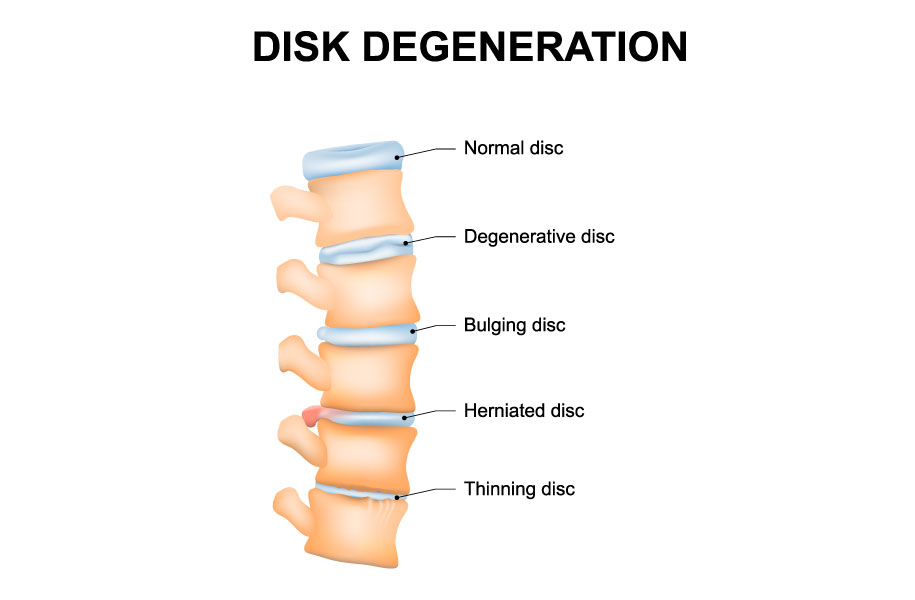
What is a Herniated Disc?
A herniated disc refers to when the inner nucleus of a vertebral disc protrudes to it’s outer layer and breaks through or is ruptured. Though similar, a bulging disc in the neck or back should not be confused with a Herniated Disc. Although bulging discs do share some of the same symptoms with a herniated disc, a vertebral disc is considered bulging only when the inner material of the disc does not break though its outer shell.
Causes of a Herniated Disc
A herniated disc may happen as a result of a great amount of pressure being placed on the disc, or if the disc has degenerated from age and other factors.
Herniated Disc Treatments
The treatment of a herniated disc depends on your symptoms. Some herniated discs cause no symptoms. Others can irritate nearby nerves and result in pain, numbness, or weakness in an arm or leg. Not every disc needs a surgical intervention. When needed, treatment includes medication, physical therapy, and possibly surgery when conservative treatments don’t work. Caution should be used when bending and twisting with herniated discs so that it does not progress into a larger herniation.
